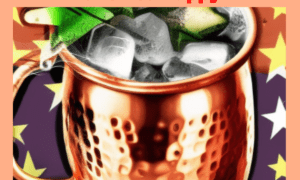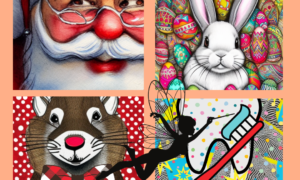
Burns Night is today in honor of poet, Robert Burns.
Burns Night is a public celebration held throughout the world to commemorate the Scottish poet Robert Burns, who is widely considered to be one of Scotland’s national literary icons. The event typically takes place each year on or around January 25, Burns’ birthday, and involves recital of his famous works, such as “Auld Lang Syne” and traditional Scottish dishes like haggis and whisky.
In addition to food and speech-making, attendees to a Burns Night event may also participate in celebratory activities such as dancing, singing, and other cultural performances. Burns Suppers can be formal or informal occasions full of pomp, tradition and good times, to honor the work of an iconic figure whose vision remains deeply relevant today.
HISTORY OF BURNS NIGHT
Robert Burns was born in Alloway, a small town near Ayr, in 1759. With his impressive works he gained immense popularity throughout the United Kingdom in the late 18th century. His works mainly focused on common people’s life and mainly dealt with philosophical topics such as human rights, social justice and compassion. Written mainly in Scots dialect and many other languages popular within his era, there are 425 of Robert Burn’s poems available to this day – immortalizing his literary achievements even centuries after he wrote them.
Also known for changing Scottish culture drastically due to people wanting to study where personality allowed them to do so, Robert Burns is one of the most renowned poets of all time.
BURNS NIGHT: TEN WORKS OF ROBERT BURNS
Celebrate Burns Might by stepping into the enchanting world of Scottish tradition and literary brilliance as we prepare to celebrate Burns Night, a time-honored tribute to the legendary poet Robert Burns. This annual commemoration invites us to immerse ourselves in the rich cultural tapestry of Scotland. From the recitation of Burns’ timeless verses to the savoring of traditional Scottish fare, the night is a captivating journey into the heart of poetic legacy and camaraderie.
Whether partaking in a formal Burns Supper or joining an informal gathering, the spirit of this celebration honors not only the Bard’s enduring words but also the enduring charm of Scottish heritage. Let the revelry commence, as we raise a toast, share in the Address to a Haggis, and embrace the warmth of community in homage to the immortal Robert Burns.
- “Auld Lang Syne” (1788): Perhaps Robert Burns’ most famous work, “Auld Lang Syne” is a traditional Scottish song sung to bid farewell to the old year. Its nostalgic lyrics celebrate enduring friendships and the passage of time.
- “Tam O’ Shanter” (1790): This narrative poem tells the tale of Tam, a farmer with a penchant for drinking, who encounters supernatural beings during a late-night ride. The poem explores themes of human folly and the consequences of indulgence.
- “To a Mouse” (1785): In this empathetic poem, Burns addresses a mouse whose home he accidentally overturned while plowing a field. The work reflects on the fragility of life and the universal struggles of all creatures.
- “A Red, Red Rose” (1794): This romantic poem expresses enduring love and features the famous lines “O my Luve’s like a red, red rose / That’s newly sprung in June.” Burns captures the beauty and intensity of love through vivid imagery.
- “Address to a Haggis” (1786): Written as a toast to the Scottish dish haggis, this work is often recited during Burns Suppers. Burns humorously praises the culinary creation while also reflecting on life’s challenges.
- “Holy Willie’s Prayer” (1785): This satirical poem exposes the hypocrisy of a fictional character, Holy Willie, who prays self-righteously. Burns critiques religious hypocrisy and highlights the disparity between one’s public image and private actions.
- “To a Louse” (1786): In this humorous poem, Burns observes a louse crawling on a lady’s bonnet during a church service. The work satirizes human vanity and social pretensions.
- “The Cotter’s Saturday Night” (1785): This narrative poem portrays the simple and heartwarming scene of a Scottish family gathering on a Saturday night. Burns pays tribute to the virtues of domestic life and the bonds of family.
- “Scots Wha Hae” (1793): A patriotic and stirring poem, “Scots Wha Hae” was written in the form of a speech delivered by Robert the Bruce before the Battle of Bannockburn. It serves as a call to arms for Scottish independence.
- “Ode to a Haggis” (1786): Similar to “Address to a Haggis,” this poem is often performed as part of Burns Suppers. It humorously praises the virtues of haggis, celebrating Scottish culture and culinary traditions.
HOW TO CELEBRATE BURNS NIGHT
- Select a Robert Burns poetry book.
- Beginner’s Guide to Hosting a Burns Supper.
- All about haggis – can you have it in America? The North American version of haggis.
- Purchase imported Haggis.
- 17 Best Ever Scottish Recipes.
- If you love the article image, purchase it on these fun products on Zazzle!
- Download the 38 Hertz Celebration Book with 365 days of celebrations!
Note: If the above links do not direct you to the appropriate referral on the first try, return to the article and try again.
Do you have any ideas about how to celebrate this day? Please share them!












